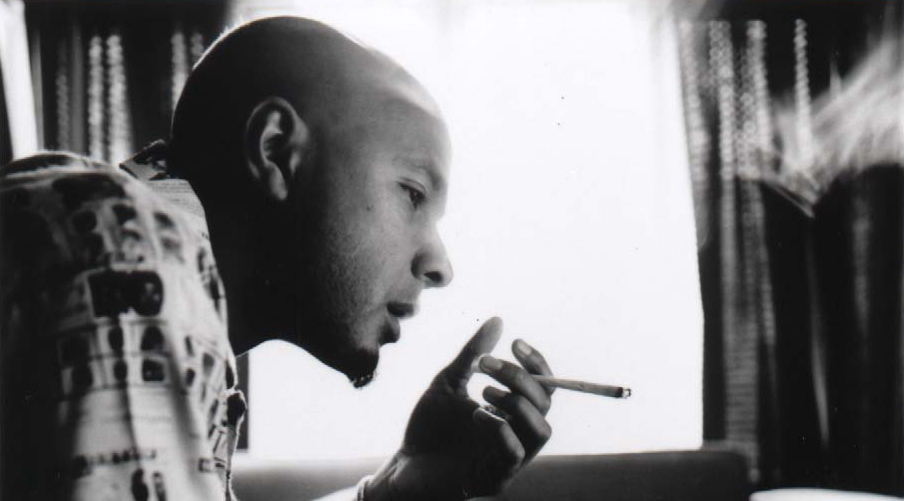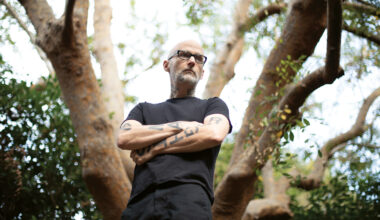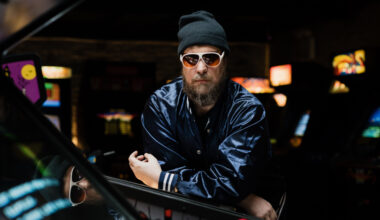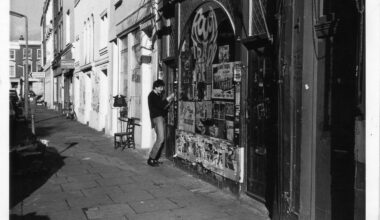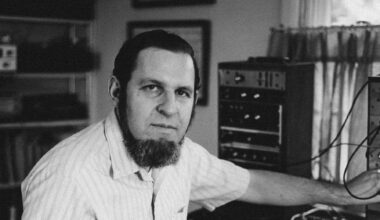While it hardly seems possible, Nightmares On Wax’s ‘Smokers Delight’ is 25 years old. As the album gets a welcome reissue, we talk to big chief George Evelyn about his labour of love, and where it all came from…
There’s a well-known anecdote about how George Evelyn conceived ‘Smokers Delight’, the 1995 Nightmares On Wax album, while tripping on acid and listening to The KLF’s ‘Chill Out’ for the first time. The story is true, confirms Evelyn. But as he also explains, the ethos behind the record, recently reissued to mark its 25th anniversary, was a profound one. As with all great works, he was trying to reflect the essence of the time.
“What I felt through that whole period was that there is a magic out there somewhere,” he says. “And I thought, ‘What if I can put the magic that I can sense and that I can feel, whether I’m stoned, or whether I’m in an altered state, in a record?’. And then somebody could listen to the record and still hear that magic. That was my aim.”
Evelyn is speaking on the phone from Ibiza, where he has been based for over a decade. While he now calls the White Isle home, it was West Yorkshire that proved the most fertile ground for Nightmares On Wax. To discuss ‘Smokers Delight’ with Evelyn is to go on a journey through time, back to his childhood and to the years spent in working class neighbourhoods of Leeds. The city was a formative environment for a young lad with a penchant for hip hop and b-boy culture.
“Leeds in the late 1970s and 80s was super multicultural,” recalls Evelyn. “Lots of Irish, lots of Asians, lots of Caribbeans. My neighbourhood was right next to the university, so we had people there who came from all over the country, and all over the world. It was an interesting melting pot of people.”
Evelyn’s father introduced his son to soul music by artists like Quincy Jones and Curtis Mayfield. His older sister was a disco dancer.
“She’d come home with cassettes or a 12-inch from dancing competitions,” says Evelyn. “So stuff like that used to trickle down to me. I’d be like, ‘Oh wow, you’ve been to the club, what’s that like?’.”
The youth centres in the city, and cultural hubs like the West African Centre, gave Evelyn his first introduction to the powerful pull of sound systems.
“They used to have sound systems playing in the senior club at the youth centre. I was obviously too young to go in there, so me and my friend, a guy called Dennis Smith, would go and sit outside. It was like something you couldn’t touch or reach, but all the older kids were there, and we wanted to be part of it.
“I’d go to Dennis’ house and his older brother would be playing a lot of reggae and dub. His brother had a basement lock-up where they built speaker boxes. We would go there after school and watch them being built. When you’re a young boy, anything that’s bigger is better!”
Between 1982 and 1984, Evelyn became obsessed with hip hop and breaks. He joined a breakdancing crew in nearby Bradford, and their practice sessions took place in an empty badminton court. “And then we’d go battle,” laughs Evelyn. It was during this period that he met Nightmares On Wax collaborator Kevin Harper.
“We’d gone back to Kevin’s flat, and he was scratching on his mum’s hi-fi. There was a massive volume knob on the turntable, and I was like, ‘You’ve gotta teach me how to do that!’. It blew my mind. I’d seen it on the ‘Buffalo Gals’ video and I’d heard it on records, but I’d never seen someone do it.”
By 1986, while they were still teenagers, Evelyn and Harper would routinely gatecrash student parties where the duo discovered “doing hot knives and all the rest”. It was at a student night called ‘Down Beat’ that Nightmares On Wax wound up with their first club residency.
“This one particular weekend, there was a basement party going on,” he explains. “We were like, ‘If we go get our records will you let us play?’. Bearing in mind, we were 16 at the time, we just had to blag it about how old we were. He offered us, and this is the best thing, a 20-minute set. For two of us! So we made a mega-mix. To cut a long story short, we ended up running this night. It became our platform for trying out demos. We used to play our own cassette demos at the club, but not tell people that it was us.”
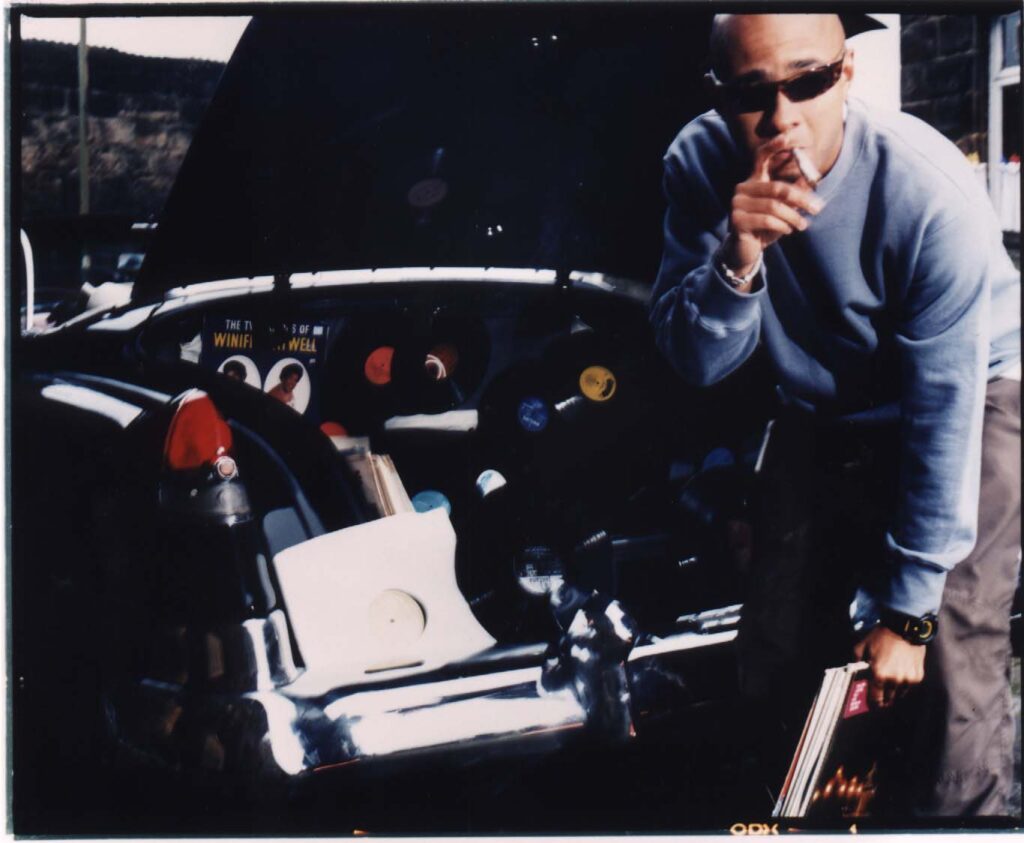
One of Nightmares On Wax’s first tracks, 1989’s ‘Let It Roll’, was born out of this period. To record it, Evelyn borrowed a friend’s 808 drum machine, bought a Roland SH-101 keyboard, “and I begged my mum to lend me some money to buy this Casio keyboard which was about £100 at the time,” he says. “We would play it in the club and they would go berserk. The first time we played it, me and Kevin crouched down behind the DJ booth and we couldn’t stop laughing. We’d never had that experience of playing our own tune and the place going off before.”
‘Let It Roll’ was self-released on Nightmares On Wax’s own label, “which we stupidly named Poverty Records,” says Evelyn. They borrowed Evelyn’s brother’s car, drove to record shops up and down the country, and sold every copy in two weeks.
In 1991, the Nightmares On Wax debut album, ‘A Word Of Science (The 1st & Final Chapter)’ was released on Warp. It was the only release the band – then made of up Evelyn, Harper and John Hanlon – would put out as a trio. It is still praised for its unique sound and pivotal role in the bleep era.
“We decided to do everything and anything that’s ever influenced us, because we might not get the chance to do it again,” says Evelyn. “We couldn’t believe we’d been asked to make an album. We were 19 at the time. The record was totally that – everything musical that had influenced us in our lives. It was called ‘A Word Of Science’ because it was an experiment.”
What does he think made their sound so distinct?
“I was heavy into sampling,” he says. “What made the duo of Kevin and me really strong as DJs was that we both came from a hip hop background. Kevin was really into house and I was into funk and house as well. As producers, we brought it all together, which gave us a particular sound.”
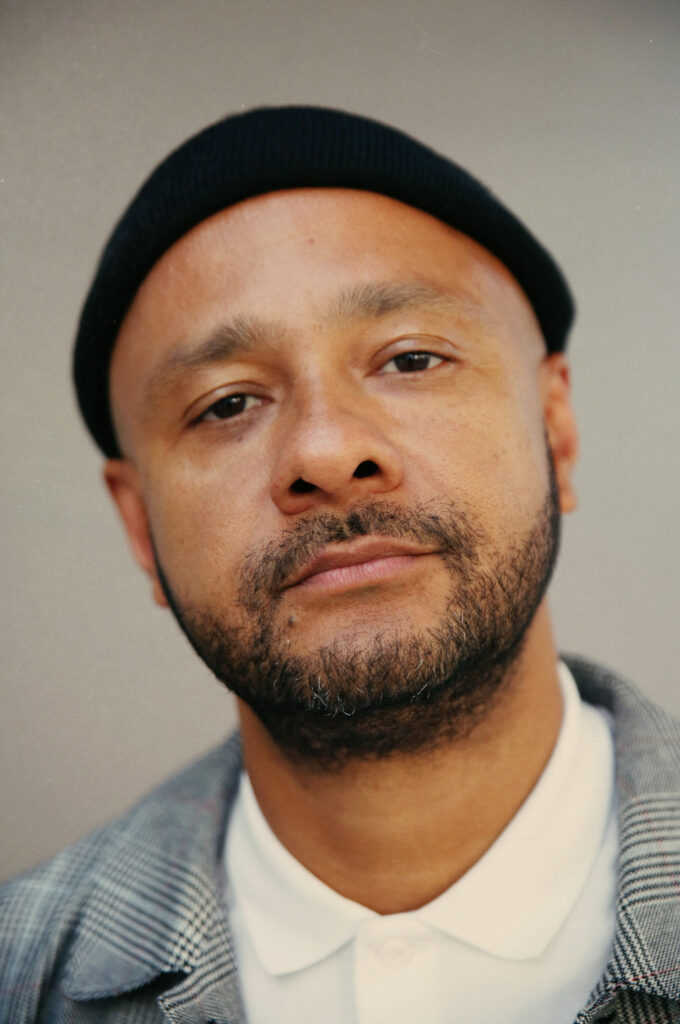
Despite their success with ‘A Word Of Science’, soon after its release both Hanlon and Harper quit, leaving Evelyn to continue Nightmares On Wax as a solo project.
“Me and Kevin started to drift apart, basically,” he says. “He’d fallen in love with a girl, I was going off and partying with different people. It just happens. It was a really scary time, because all of a sudden it was just me. And obviously I was doing something that was in completely uncharted territory. It was a real ‘gulp’ kind of moment. I just locked myself away and put myself into it.”
Using an Atari ST computer and a Akai S950 sampler, Evelyn set about making ‘Smokers Delight’ from home.
“I’d go to Sheffield or Wakefield when I needed to use musicians,” he says. “I was in Touchwood studios in Leeds for the last five days of the album, which were an incredible five days. I recorded the percussion and some more keys and other bits and bobs. But most of it was done in my crummy flat where I had to wear two jackets, gloves, scarf, and a dressing gown just to try and stay warm.”
How did that environment shape him as a producer?
“I’ve often thought it would be nice to have that approach again,” he says. “But when I think about how much time I spent locked away making those sounds, it was a long time. And life was quite tough then too, you know? In every respect. Financially, emotionally, and I think there was, in all honestly, a survival aspect in there.”
It took a year to clear all of the samples on the record before Warp were able to release it. Though ‘Smokers Delight’ did modestly at the time, it has since become a defining touchstone of the UK’s electronic music scene, a shift between bleep and rave to trip hop.
“We released it, and there was a bit of a buzz about it,” says Evelyn. “But once we took it on the road, within six months it was the word. We didn’t have the money to promote it at first, but in hindsight the most powerful tool in the world was word of mouth. You can’t buy that. And that’s what happened.”
‘Smokers Delight’ has grown in stature over the years. It is one of those rare records that is both of its time, and timeless. It was the perfect soundtrack for a generation coming down from the heady days of rave. It was also an antidote to years of Thatcherite Britain.
“The best music that’s ever made is when there are social pressures,” says Evelyn. “The soul cries out to express itself. We had the whole Thatcher thing, we had the miners’ strikes and then we had this rave culture come and sweep us away.
“We felt like we were revolutionaries at the time. We were going to these illegal raves and 10,000 people were there. The police couldn’t stop us. I clearly remember one time hanging out of the window in the back of my friend’s car, going, ‘This is what it must have been like in the 60s!’. I really believed that at the time. I think when you recognise these cracks in society and how systematically we’re manipulated, when you see that and feel the chains are there, music somehow allows you to channel an energy that you can’t fabricate.”
Get the print magazine bundled with limited edition, exclusive vinyl releases

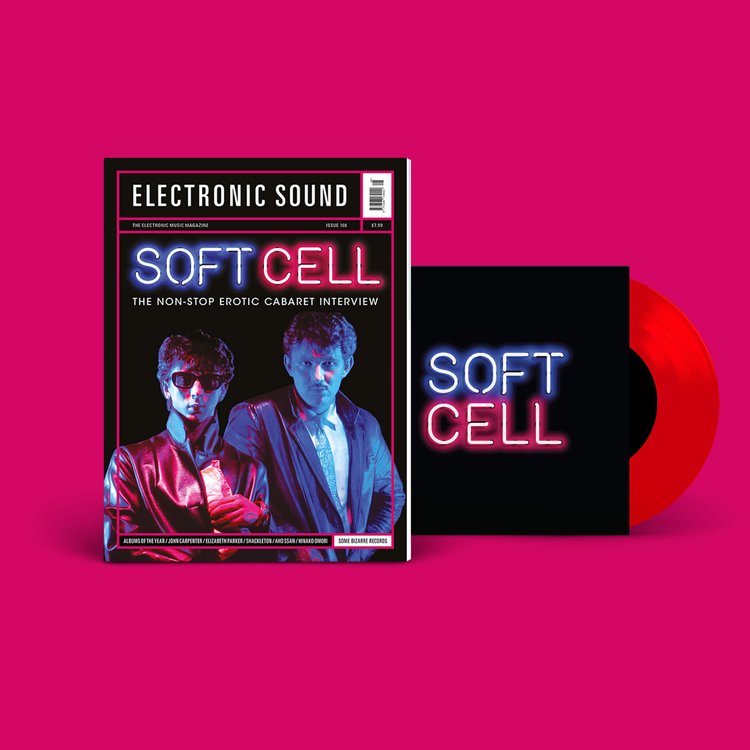

With ‘Smokers Delight’, Evelyn established himself as one of the originators of the downtempo and trip hop approach to production that dominated the early 1990s. A fusion of jazz, hip hop, reggae and the early rave sounds of the late 80s and early 90s, the record has since been cited as a pivotal trip hop work alongside Massive Attack’s ‘Blue Lines’ and Portishead’s ‘Dummy’. Yet Evelyn wasn’t keen on the trip hop tag, a sentiment expressed in the album’s liner notes, which he wrote himself.
If not trip hop, then what does he hear now when he listens to the music, 25 years after its original release?
“When I hear the album, I hear truth and I hear fearlessness,” he says. “I hear beauty and darkness. It’s a document of life at that time, but not just my life. There was a time when it was just my life and my friends’, and then the moment that it got released it became somebody else’s as well.
“The interesting thing about that is that it’s not tied to that time. I remember that I loved the sound, I loved what I was doing, I was so into it. I was so passionate about it. But I also remember being scared because I couldn’t compare it to anything. I think that’s the price of originality. You end up on an island on your own and you don’t know if anyone is going to come to the island. But musically, what you’re getting back sonically is so satisfying for your soul that you know you must be doing something right.”
The 25th anniversary reissue of ‘Smokers Delight’ is on Warp
